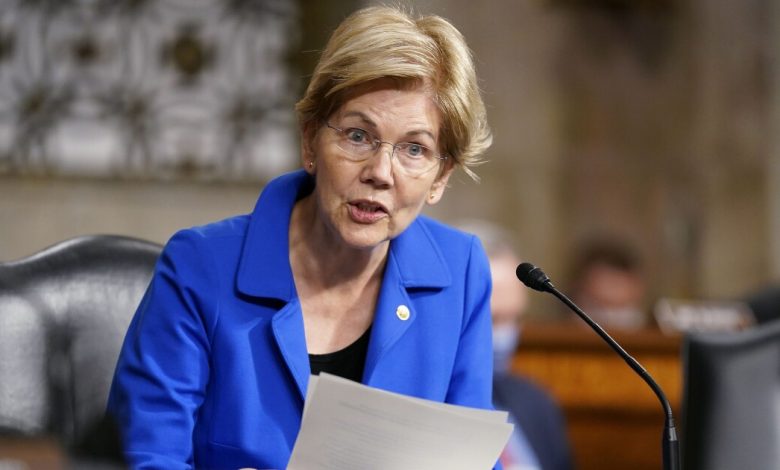Online Program Management Firms Are Thriving. And These Democrats Want Answers.

A handful of Senate Democrats are pressing the nation’s largest online program management companies for details on their operations — a signal that the industry’s Covid-fueled expansion may face scrutiny on Capitol Hill.
Online program management firms, sometimes referred to as OPMs, partner with traditional colleges and universities to expand their online offerings. The sales pitch is simple: Team up with us, and you’ll quickly have a whole new menu of online degree programs to offer students, with virtually no upfront financial investment.
Criticism of the long-term costs, for both institutions and students, however, has been growing. Online management companies can pocket as much as half (or even more) of a college’s tuition revenue from the joint online program. And because the companies are paid on a percentage basis, there’s an incentive for these online programs to be very expensive, while enrolling lots of students.
But students who enroll in such programs, which can charge over $100,000 for some graduate degrees, often have no idea that much of the work behind the scenes has been outsourced to a private company they’ve never heard of.
In November, The Wall Street Journal highlighted a $115,000 master’s-degree program at the University of Southern California. The program has been roundly criticized by some of its own graduates, who are now saddled with debt and, the Journal reported, deeply disillusioned.
“We continue to have concerns about the impact of OPM partnerships on rising student debt loads,” states a letter released on Friday by three Senate Democrats, Elizabeth Warren, of Massachusetts, Tina Smith, of Minnesota, and Sherrod Brown, of Ohio.
The letter asks eight OPM companies to provide more details on their tuition-sharing agreements with individual universities, the students who are enrolling in those programs, and the amounts they are being charged, among other topics.
In at least some OPM degree programs, students end up with heavy debt, questionable career prospects, and a degree that didn’t live up to the lofty promises made by admissions recruiters.
Online program management companies are not without their supporters. Kelly Otter, dean of the Georgetown University School of Continuing Studies, recently wrote in an op-ed for The Chronicle that while there is reason for concern about OPMs, they can be “valuable tools for universities as they try to leverage technology to meet challenges of scale and complexity.”
The three senators, in Friday’s letter, request that the OPMs “describe the compensation structure for your employees who work in student recruitment.”
Some OPMs have been accused of aggressive recruiting tactics, such as calling student prospects repeatedly by phone at a frequency similar to telemarketers.
The accusation mirrors past scandals at America’s for-profit colleges — some of which have been found to use high-pressure sales tactics, while misleading and defrauding students.
Friday’s letter from the three Senate Democrats is a follow-up to a similar message sent in 2020. Since then, the OPM industry has expanded considerably. The letter states that the total number of OPM partnerships grew to 367 from under 200 over the past two years.
“As students become more comfortable with or demand the flexibilities provided by virtual learning formats and universities increase their online offerings, this expansion is likely to continue,” the senators wrote.
“Furthermore, OPM partnerships are becoming more integral to university finances and operations: one recent report found that some institutions are relying on OPMs for as much as 40 to 50% of their total enrollment.”
Several OPM companies told The Chronicle they would respond to the senators’ inquiry.
Academic Partnerships wrote in a statement that the company “is incredibly proud to help students advance their education in an affordable and flexible way in high-need areas, such as nursing, education and business, by supporting regional public universities.”
Another industry leader, 2U, wrote: “We provided a comprehensive response in 2020, and since then we have released two Transparency Reports that include most of the data requested today. We have been at the forefront of demonstrating transparency in our space and have continued to engage in industry-leading, outcomes-related research with Gallup.”
Grand Canyon Education also pledged to cooperate with the senators, writing in a statement that “ our university partners are overwhelmingly pleased with the services provided and with the outcomes that the relationship produces for our partners and their students.”
Source link






